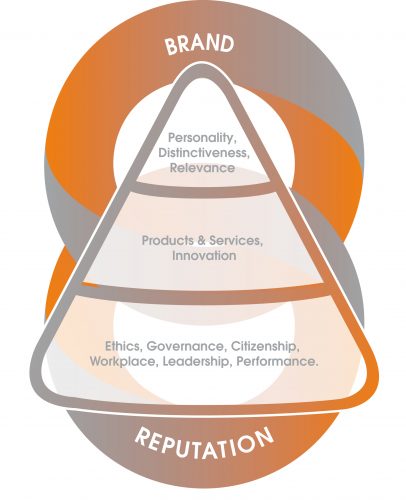
Why Core Purpose?
…the evolution of corporate responsibility
Many organisations are grappling with defining their Core Purpose. The cynical amongst you might view this as a case of emperor’s new clothes, another new term for consultants to present as this seasons’ corporate must-have. However, there are solid business reasons for companies articulating why they exist, beyond making profits for shareholders. For instance, an article in Market Leader identifies that having a core purpose is the most important attribute of companies that have grown by 6% or more in last 3 years.
The reasons are complex but are to do with where we are as a society and the expectations we now have of business. At the end of this article I give my view on how organisations should define their core purpose. First, let’s examine how we got to a point where companies feel the need to articulate a core purpose. This can be explained to a certain degree by considering how our expectations of corporate responsibility have evolved over time.
Pre 1750’s. The Owners/Shareholders period.
In the dark old days, way before the Internet, the telephone or even universal electricity, companies existed purely for the pursuit of power and profit for their owners. The British economy expanded during this time with the growth of – for example – the East India Company. A Company that at one point even had its own army to crush any resistance to its pursuit of power and profit. Employees were dispensable (conditions on many of its vessels appalling even by the standards of the day) and the cultural, environmental and societal impacts of its actions were simply never considered. During this period, as long as companies made profit, they could pretty much do what they wanted. And they did.
1750s to early 1950s. The emergence of Economic Stakeholders
From the 1750s we see companies beginning to consider the needs of economic stakeholders – those with which the company has a contractual obligation such as employees and suppliers. This was mainly in response to the demand for workers’ rights. The union movement in the UK had been legalised (or decriminalised) and fought hard for workers’ rights. Also at this time, enlightened company owners, typified by the great Quaker chocolate families such as Cadbury, Frys and Rowntree, developed the early examples of a corporate purpose beyond just profits for owners. These Quaker companies existed for the benefit of their employees and suppliers. They built entire communities – such as Bourneville near Birmingham – with the express intent of improving the lives of their employees. Companies had now begun to consider a wider group than just shareholders; they were considering employees and suppliers also as stakeholders.
1950s to 2000. The importance of key opinion leaders
The post war shift from production to consumption saw a boom in trade as distribution and communication became much easier. This lead to market competition and companies developed brands for competing products. Consumers began to have a voice through organised groups such as consumer associations and government began developing regulatory frameworks across sectors. From the 1970s, other pressure groups such as Greenpeace also started to grow and be noticed. Now companies had to consider individuals and groups who they had no direct control over – even though these could have a very direct influence on business. These groups, widely known as opinion leaders, gave rise to the corporate communications and public affairs functions we see in businesses today and a focus on corporate reputation management. Successful companies, whilst satisfying shareholders, and their economic stakeholders, now developed stakeholder engagement strategies that focused on building broad support with opinion leaders.
2000 to now. Corporations’ place in society.
The current period is one where we are all connected though mobile, Internet and social media. Against a backdrop of the loss of public trust in institutions such as Banking, Politics, Media and big business in general. To counter this, many people now want to know what good a company does for all of society i.e. what is its core purpose beyond making profit, how does it play a positive role in society. The current evidence suggests that it is those companies that can clearly articulate a core purpose – one that is true and resonates with all stakeholders – that will be the successful companies of the future.
How to define Core Purpose.
Its important to be clear what we mean by core purpose. Some companies have narrowed its meaning to social purpose, with connotations of citizenship, CSR etc. Here at Tovera we see it as more than that, we define it as a company’s fundamental raison d’être, central to its business and identity.
We have a simple mantra: core purpose must come from the core. Sounds simple, but its amazing how companies can get this wrong and seek to develop a core purpose isolated from the business context or sector characteristics and customer and stakeholder expectations. This results in something that is not believed or lived from the inside, so never believed or trusted from the outside of an organisation.
We work through a simple process:
- Clarify and collect core inputs such as business strategy, competitive context, societal context, customer and stakeholder perceptions and expectations, brand strategy etc. Synthesising and analysing these together is the first stage.
- Take the findings from step 1 as inputs to a workshop with the senior team where through rigorous analysis and discussion the group agrees upon a purpose which is true to the company’s values and strategy and is in harmony with, and in support of, its corporate brand and reputation.
- The third stage, an important one, which, so often missed, is testing the statement of core purpose with a group of people from across the stakeholder spectrum – shareholders, employees and key opinion leaders.
- Finally, the implementation – ensuring the statement of core purpose is considered in every business decision made, and in every stakeholder engagement and customer touch point.
For more details on how Tovera could help your organisation define its core purpose, you can reach me at sfox@tovera.consulting
………………………………………………………………………………………………………………………
Spencer Fox is a reputation and corporate brand specialist and has advised companies such as AstraZeneca, ITV, L’Oréal and Tesco. He is a founding partner of Tovera Consulting – a brand and reputation research, measurement and advice company that helps companies build both strong brands and reputations.

